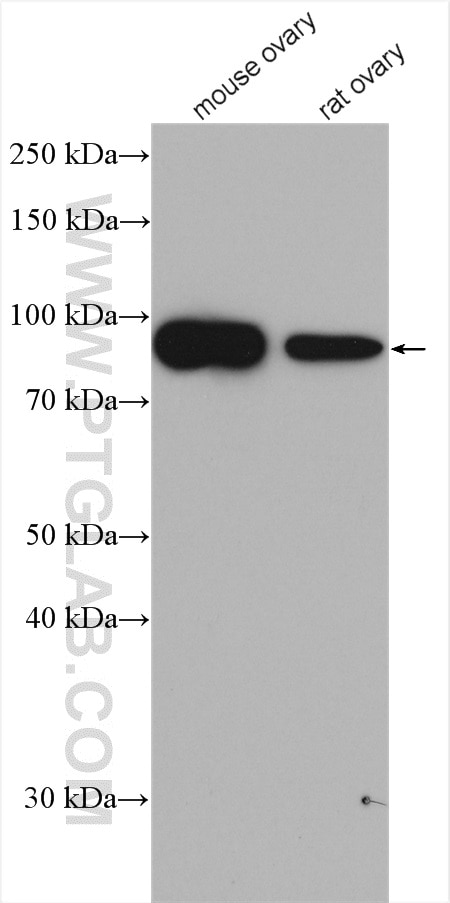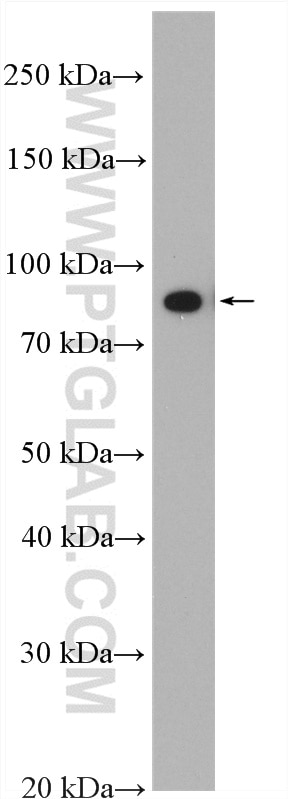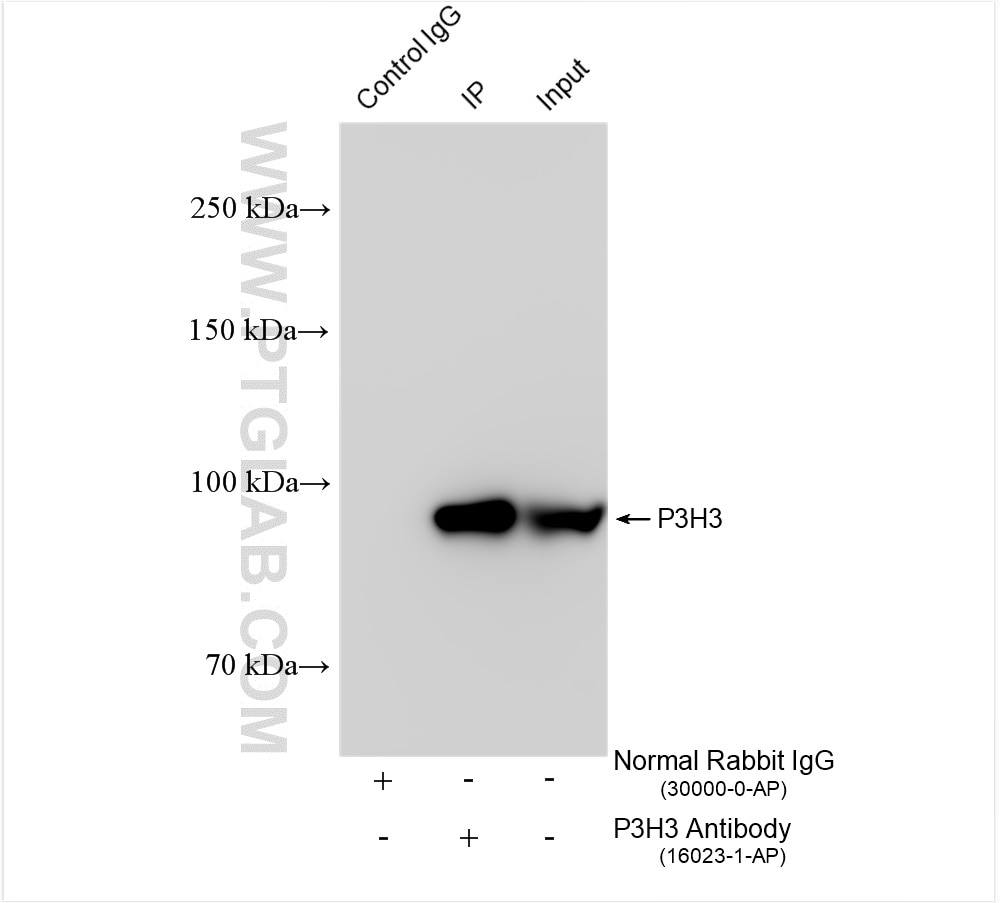- Phare
- Validé par KD/KO
Anticorps Polyclonal de lapin anti-P3H3
P3H3 Polyclonal Antibody for WB, IP, ELISA
Hôte / Isotype
Lapin / IgG
Réactivité testée
Humain, rat, souris
Applications
WB, IP, ELISA
Conjugaison
Non conjugué
N° de cat : 16023-1-AP
Synonymes
Galerie de données de validation
Applications testées
| Résultats positifs en WB | tissu ovarien de souris, cellules MDA-MB-453s, tissu ovarien de rat |
| Résultats positifs en IP | MDA-MB-453 cells, |
Dilution recommandée
| Application | Dilution |
|---|---|
| Western Blot (WB) | WB : 1:500-1:3000 |
| Immunoprécipitation (IP) | IP : 0.5-4.0 ug for 1.0-3.0 mg of total protein lysate |
| It is recommended that this reagent should be titrated in each testing system to obtain optimal results. | |
| Sample-dependent, check data in validation data gallery | |
Applications publiées
| KD/KO | See 1 publications below |
| WB | See 6 publications below |
| IP | See 1 publications below |
Informations sur le produit
16023-1-AP cible P3H3 dans les applications de WB, IP, ELISA et montre une réactivité avec des échantillons Humain, rat, souris
| Réactivité | Humain, rat, souris |
| Réactivité citée | Humain, souris |
| Hôte / Isotype | Lapin / IgG |
| Clonalité | Polyclonal |
| Type | Anticorps |
| Immunogène | P3H3 Protéine recombinante Ag8850 |
| Nom complet | leprecan-like 2 |
| Masse moléculaire calculée | 736 aa, 82 kDa |
| Poids moléculaire observé | 82-90 kDa |
| Numéro d’acquisition GenBank | BC017217 |
| Symbole du gène | LEPREL2 |
| Identification du gène (NCBI) | 10536 |
| Conjugaison | Non conjugué |
| Forme | Liquide |
| Méthode de purification | Purification par affinité contre l'antigène |
| Tampon de stockage | PBS with 0.02% sodium azide and 50% glycerol |
| Conditions de stockage | Stocker à -20°C. Stable pendant un an après l'expédition. L'aliquotage n'est pas nécessaire pour le stockage à -20oC Les 20ul contiennent 0,1% de BSA. |
Informations générales
P3H3 (prolyl 3-hydroxylase 3, also known as LEPREL2) is a member of the leprecan family of proteins, which also include P3H1, P3H2, CRTAP and SC56. Collagen prolyl hydroxylases are required for proper collagen biosynthesis, folding, and assembly. P3H3 is thought to reside in the endoplasmic reticulum and has prolyl 3-hydroxylase activity catalyzing the post-translational formation of 3-hydroxyproline in -Xaa-Pro-Gly-sequences in collagens, especially types IV and V.
Protocole
| Product Specific Protocols | |
|---|---|
| WB protocol for P3H3 antibody 16023-1-AP | Download protocol |
| IP protocol for P3H3 antibody 16023-1-AP | Download protocol |
| Standard Protocols | |
|---|---|
| Click here to view our Standard Protocols |
Publications
| Species | Application | Title |
|---|---|---|
PLoS Genet Sc65-Null Mice Provide Evidence for a Novel Endoplasmic Reticulum Complex Regulating Collagen Lysyl Hydroxylation. | ||
PLoS Genet Cyclophilin B control of lysine post-translational modifications of skin type I collagen. | ||
Sci Rep Glyoxalase 1-knockdown in human aortic endothelial cells - effect on the proteome and endothelial function estimates. | ||
J Biol Chem P3h3-null and Sc65-null Mice Phenocopy the Collagen Lysine Under-hydroxylation and Cross-linking Abnormality of Ehlers-Danlos Syndrome Type VIA.
| ||
J Biol Chem Type I and type V procollagen triple helix use different subsets of the molecular ensemble for lysine post-translational modifications in the rER. | ||
AIMS Genet Expression characterization and functional implication of the collagen-modifying Leprecan proteins in mouse gonadal tissue and mature sperm. |
Avis
The reviews below have been submitted by verified Proteintech customers who received an incentive for providing their feedback.
FH Boyan (Verified Customer) (12-16-2021) | This antibody did not detect any band in RPE1 or MEF cell lysates
|




